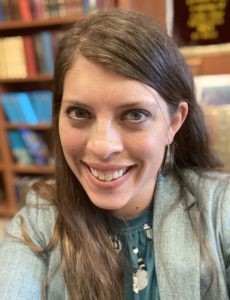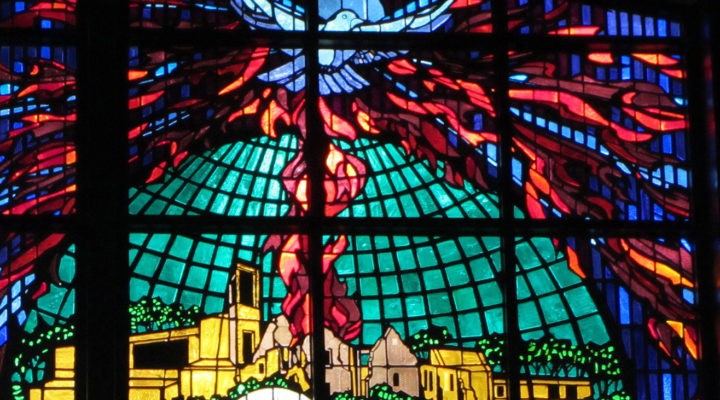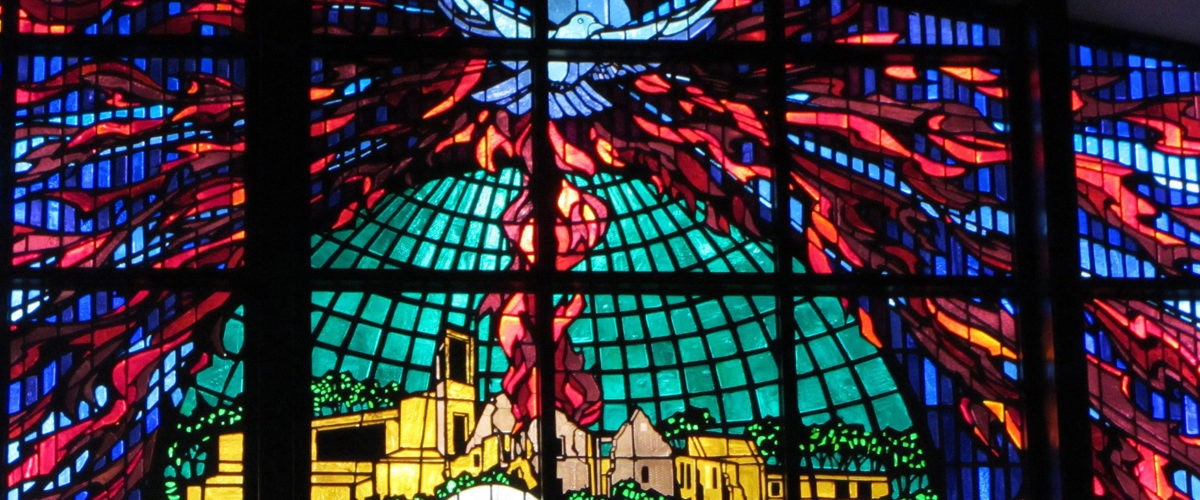Two days after I learned that the Southern Baptist Convention Executive Committee formally voted to remove St. Matthews Baptist Church in Louisville, Ky., from denominational membership, my chest began to hurt. Right in my sternum, there was pain I can only describe as the feeling of an aching wound.
I realized two things that day: My heart is broken, and the wound is very old.
I have been wounded and in pain for 30 years. I am one casualty of this Southern Baptist battle in a religious war that has stretched on for more decades than I have been alive.

Laura Levens
You might look at my photograph and think, how could this be? Thirty years is a long time, and I am not yet 40. Thirty years has been enough time for multiple degrees in religious studies, an ordination and more than a few years of work as a seminary professor. And yet all this time, I have been carrying this wound of being a religious leader in a tradition and a geographic region where my very presence could provoke attack.
I have known, from a young age, that my existence carries the potential for this danger. As I mentioned in a previous column, I have seen the damage done; I have felt the blows. And after all this time, I have just begun to survey myself for damage.
I grew up at St. Matthews Baptist Church, a congregation known for pulling through a building fire and professing its spiritual fire for following Jesus and serving the world. From a very young age, I would visit the sanctuary with its expansive ceiling and stained-glass windows so tall and ornate they seemed to reach for the heavens. When I was 5, I was so happy to be there one Sunday that I declared that the whole world must come to church with us, it felt so big. My parents gently burst that bubble.
When I was 6 or 7, my children’s minister taught us the words to Holy, Holy, Holy, and I again felt so happy learning the strange theological terms like “seraphim” and “Trinity.” When I was 8, I was rewarded with a tableful of adults bending their ears to listen to me as I confidently explained Jesus’ triumphant entrance into Jerusalem and how expectations would soon turn against him. Religious conversation, singing the faith and being in church were where I felt complete.
And at about that same age, when I was 8 or 9, I first became aware that there were Baptists out there, Southern Baptists connected to where I went to camp and what I learned in church, who denied women ordination and church leadership. Like other kids, I could put two and two together and realize that expectations might soon turn against me.
“When I was 8 or 9, I first became aware that there were Baptists out there … who denied women ordination and church leadership.”
This is when the wound appeared. I had gifts and devotion; I could do this faith work. I knew those gifts made me a person to potentially squash and silence, yet I knew there were other adults in my church sacrificing their jobs and their time for me.
I was 9, and my church was being attacked because it refused to condemn my future as a religious leader. That is a very great weight for a child, for anyone, to bear. My pastor throughout my adolescence used to say the church was called to be strong in our welcome and our love for all and be like an irritating thorn in the flesh of the SBC. This was my introduction to prophetic witness, but it also confirmed my wariness of attack.
By college, I watched first and talked second in Southern evangelical spaces — not out of deference, but to scan for danger. When I was 25, St. Matthews Baptist Church ordained me to the gospel ministry. Until last week, I did not know whether to laugh or groan that my ordination certificate came from a dually aligned SBC-CBF congregation.
For all this time, I have been dogged by the potential for the religious crowd to turn and attack. I have worried not just for myself, but for my home congregation. Would it last in the face of the external pressure to deny a portion of its membership the full expression of the faith? Now that the church is out of every level of SBC affiliation, I can’t stop saying, “Ow!”
I do not want to take away from the importance of the church’s stance to welcome LGBTQ members into membership, nor do I want to divert necessary attention to dismantling white supremacy. But I can’t deny my own pain anymore. I’ve been wounded. I’ve been bleeding. A lot. It hurts. So much. I’ve been in pain for ages.
All this time I never thought to say, “Can someone please attend to the dagger they put in my heart?”
“All this time I never thought to say, ‘Can someone please attend to the dagger they put in my heart?’”
From my perspective as a child, the battle seemed too big and my own future too far off and uncertain to bother with. I doubt I even knew then how to name a large argument adults were having as an actual, bleeding wound. Undiagnosed and unaddressed, this wound has lasted. I think it hurt every time women’s ordination became a “debate” or hiring a female pastor was described as a potential risk too great for a congregation to endure. It has drained my energy and made me hesitant to speak. I have been working overtime to overcome it.
If I’m honest, I feel guilty for being the innocent person who brave people tried so hard to protect. Tragically, the shrapnel of religious division found its way through to my heart despite all effort. Thanks to all who fought so hard to shield and stand and create space for me to have faith and breathe. I didn’t want to tell you, but I’ve been bleeding. I am sorry I couldn’t avoid getting cut.
Despite the risks of revealing that I am in pain, I am working on how to live now that I know I carry this wound. I have started speaking up because it requires me to put down my defenses. I am grieving, and I’m not over it yet, but holding space for those feelings is a big step.
“I now have a mix-tape playlist of break-up songs to listen to.”
And I have reached out to ask for help, odd as my requests may be. I now have a mix-tape playlist of break-up songs to listen to, and all of them have been recommended to me by my friends. Having a community that will sit with me and aid in my mourning is a great comfort.
I also have discovered I am not alone in my grief because there are other wounded people out there in the world. Some don’t carry the same religious wounds as me at all, but some do. Some have experienced pain that is even greater than mine.
I have learned over the past 30 years that it is so important to sit and listen to people describe their painful experiences, especially when they have been wounded for being who they are. I am learning now that it is good to periodically examine oneself and check on one another for injury. “Where does it hurt?” is a kind word these days.
Laura Levens serves as assistant professor of Christian mission at Baptist Seminary of Kentucky. She earned a doctor of theology degree from Duke University Divinity School and is ordained within the Cooperative Baptist Fellowship. She lives in Lexington, Ky., with her husband and two children.
Related articles:
LGBTQ inclusion and clergy sexual abuse treated equally in SBC expulsions
Kentucky Baptist Convention formally excludes churches dually aligned with CBF


